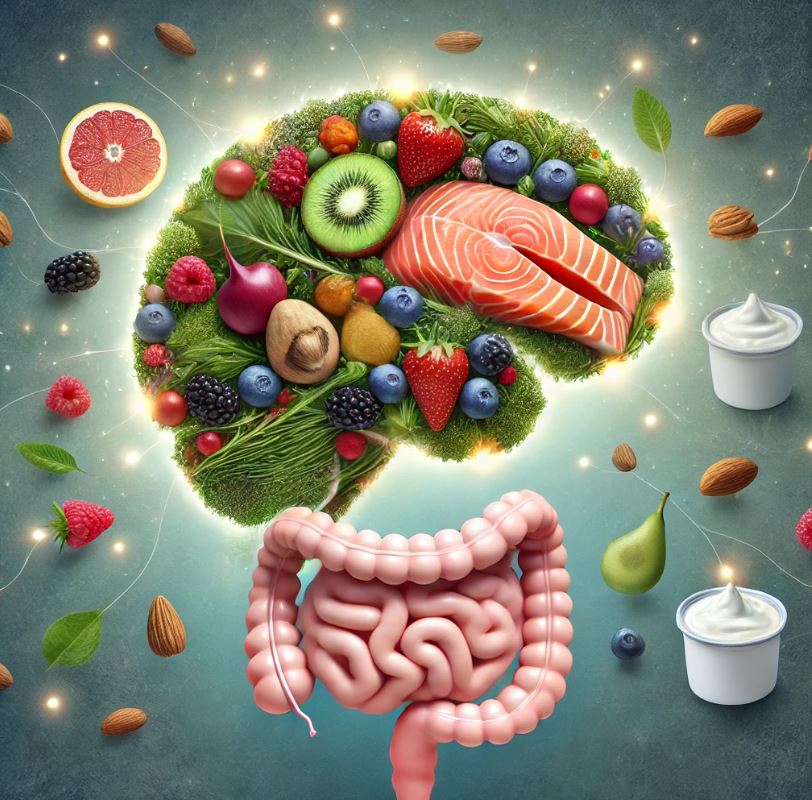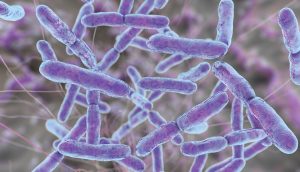Table of Contents
Introduction
The connection between what we eat and how we feel has gained increasing attention in both scientific research and popular culture. While diet has long been associated with physical health, its impact on mental health is an area that is now coming to the forefront. Understanding how certain foods can influence mood, cognitive function, and overall mental well-being is crucial in a world where stress, anxiety, and depression are becoming more prevalent. This article explores the relationship between diet and mental health, focusing on specific nutrients and dietary patterns that can support a healthier mind.
Thank you for reading this post, don't forget to subscribe!Chapter 1: The Gut-Brain Axis: A Vital Link
The gut-brain axis is a complex communication network that connects your gut to your brain. This bi-directional system plays a crucial role in regulating emotions and cognitive function. The gut microbiome, a collection of trillions of microorganisms living in your digestive tract, produces neurotransmitters like serotonin and dopamine, which directly affect mood and mental health.
Foods rich in probiotics, such as yogurt, kefir, and sauerkraut, help maintain a healthy gut microbiome. Additionally, prebiotics, which are found in foods like bananas, garlic, and onions, feed beneficial gut bacteria, promoting a balanced microbiome. A healthy gut can lead to improved mood, reduced anxiety, and better stress management.
Chapter 2: Omega-3 Fatty Acids and Brain Function
Omega-3 fatty acids, particularly EPA and DHA, are essential for brain health. These fatty acids, found in oily fish like salmon, mackerel, and sardines, as well as in flaxseeds and walnuts, have anti-inflammatory properties that are crucial for brain function.
Research has shown that a diet rich in omega-3s can reduce symptoms of depression and anxiety. Omega-3s play a key role in maintaining the structure of brain cells, promoting neurogenesis (the formation of new neurons), and protecting against neurodegenerative diseases. Incorporating more omega-3-rich foods into your diet can support mental clarity, reduce inflammation, and improve overall mental well-being.
Chapter 3: The Role of Antioxidants in Protecting the Brain
Antioxidants are compounds that protect the brain from oxidative stress, which is linked to mental health disorders like depression and anxiety. Foods rich in antioxidants, such as berries, dark chocolate, and leafy greens, can help protect the brain from damage caused by free radicals.
One of the most powerful antioxidants, flavonoids, found in dark chocolate and berries, has been shown to improve mood and cognitive function. Vitamin E, present in nuts and seeds, also plays a vital role in protecting brain cells from oxidative damage. Including antioxidant-rich foods in your diet can help preserve brain health and boost mental resilience.
Chapter 4: The Impact of Sugar and Processed Foods on Mental Health
While certain foods can enhance mental well-being, others can have the opposite effect. Diets high in refined sugars and processed foods have been linked to increased levels of depression and anxiety. These foods cause rapid spikes and crashes in blood sugar levels, which can lead to mood swings and fatigue.
Moreover, a diet high in processed foods can lead to chronic inflammation, which is associated with a higher risk of mental health disorders. Reducing the intake of processed foods and sugary snacks and replacing them with whole foods, such as fruits, vegetables, whole grains, and lean proteins, can stabilize blood sugar levels and support better mental health.
Chapter 5: The Mediterranean Diet: A Blueprint for Mental Wellness
The Mediterranean diet, rich in fruits, vegetables, whole grains, fish, and healthy fats like olive oil, is not only beneficial for physical health but also for mental well-being. Numerous studies have linked the Mediterranean diet to lower rates of depression and cognitive decline.
This diet is abundant in nutrients that support brain health, including omega-3 fatty acids, antioxidants, and fiber. The emphasis on whole, unprocessed foods helps reduce inflammation and oxidative stress, both of which are linked to mental health issues. Adopting a Mediterranean-style diet can promote better mood, sharper cognitive function, and overall mental resilience.
Frequently Asked Questions
1. How quickly can diet changes impact mental health? Dietary changes can start to influence mood and mental well-being within a few weeks, although more significant changes in mental health may take longer. Consistency in healthy eating is key to seeing long-term benefits.
2. Are there specific foods that can help reduce anxiety? Yes, foods rich in omega-3 fatty acids, magnesium, and antioxidants, such as salmon, spinach, and dark chocolate, can help reduce anxiety. Additionally, probiotic-rich foods like yogurt can support a healthy gut-brain axis, which is linked to lower anxiety levels.
3. Can a poor diet cause mental health disorders? While a poor diet alone may not directly cause mental health disorders, it can significantly contribute to the risk of developing conditions like depression and anxiety. Diets high in processed foods and low in essential nutrients can negatively impact brain function and mood.
4. What are some quick, brain-boosting snacks? Brain-boosting snacks include nuts and seeds, berries, dark chocolate, yogurt with honey, and sliced vegetables with hummus. These snacks provide a good balance of healthy fats, antioxidants, and fiber, which support brain health.
5. How does hydration affect mental health? Staying hydrated is crucial for maintaining cognitive function and mood. Dehydration can lead to fatigue, difficulty concentrating, and mood swings. Drinking enough water throughout the day helps keep the brain functioning optimally.
Conclusion
The impact of diet on mental health is profound, with certain foods offering protective benefits and others posing risks. By focusing on nutrient-rich, whole foods, and adopting dietary patterns like the Mediterranean diet, you can support both your physical and mental well-being. As research continues to uncover the intricate connections between diet and mental health, it becomes increasingly clear that what you eat truly matters for your mind as much as your body.





